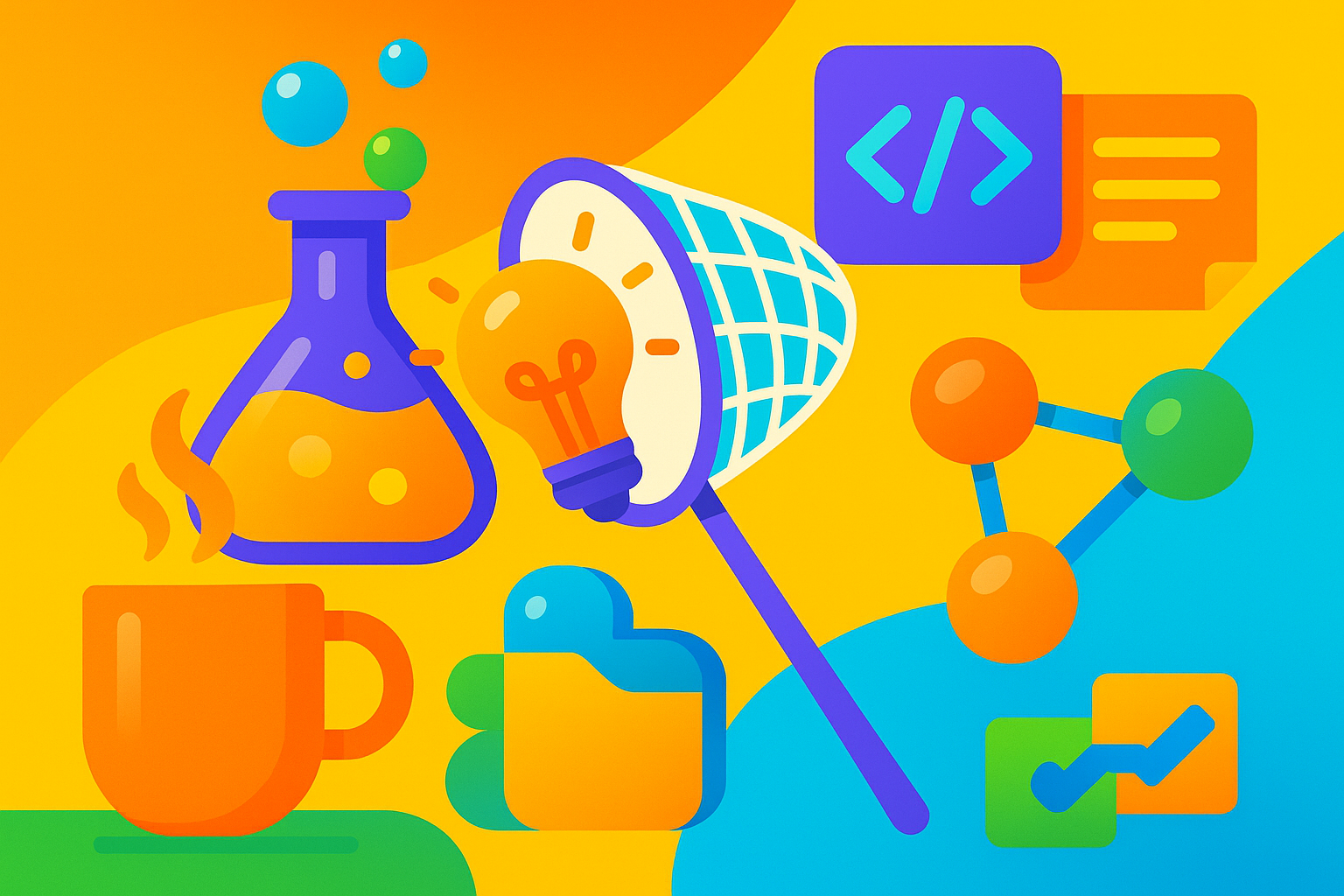
Building client-side URL-based state apps using Claude 4 and Lovable
What if your morning coffee routine could include building entire web applications? Jason reveals his daily ritual of using Claude and Lovable as a "butterfly net" for fleeting ideas—capturing those ephemeral thoughts that usually vanish before the caffeine kicks in. Watch him demonstrate client-side URL-based state management in apps built in minutes, not hours. It's part creative exercise, part technical challenge, and entirely addictive. When the barrier between idea and implementation becomes this thin, the question isn't whether you can build it—it's whether you should stop yourself from building everything.
Jason Hand and Ryan MacLean chat and demonstrate practical uses of Claude and Lovable in coming up with and building on ideas very quickly .. daily .. almost as a personal challenge. Jason shares his morning routine of using these tools almost as a “second brain” or notebook to capture fleeting ideas that come during his morning coffee time outdoors and how turning to tools like Claude or Lovable feels like using a butterfly net to capture ideas, storing them for later exploration, dissection, or problem-solving.
They discuss their tendencies to juggle multiple projects simultaneously and the challenges that accompany keeping track of all those ideas without losing context. They highlight how AI allows them to quickly kickstart projects they might otherwise only conceptualize in traditional notepads or task managers.
Jason details his personal approach of using free plans on Claude.ai and Lovable.dev, strategically working within usage limits as a daily challenge. This habit not only sparks creativity and idea capturing mechanism, but also aids him in solving real-life problems through simple applications he has built like “See Ya There” and “Split Sumthin” to help organize friend gatherings at bluegrass festivals or to split expenses with others, but without the hassle of logging into or registering for a service with his Gmail account. These problems shouldn’t require a user to give up their personal information to solve a problem.
Jason also points out how such accessible tools reduce initial complexity barriers, allowing him to rapidly prototype solutions that he can later refine or abandon based on effectiveness—thus paralleling themes familiar in songwriting processes where ideas are synthesized before being fleshed out.
Jump To
Key Takeaways
- Using AI like Claude and Lovable can act as a notebook or second brain for capturing fleeting ideas.
- These tools reduce cognitive load by allowing users to store thoughts efficiently without overburdening mental resources.
- Free plans available in these apps offer enough functionality to spark creativity through limitations.
- Rapid development frameworks allow you to transform high-level project concepts into workable prototypes quickly.
- Accessibility of such technology democratizes problem-solving, making it easier for non-developers to innovate solutions.
